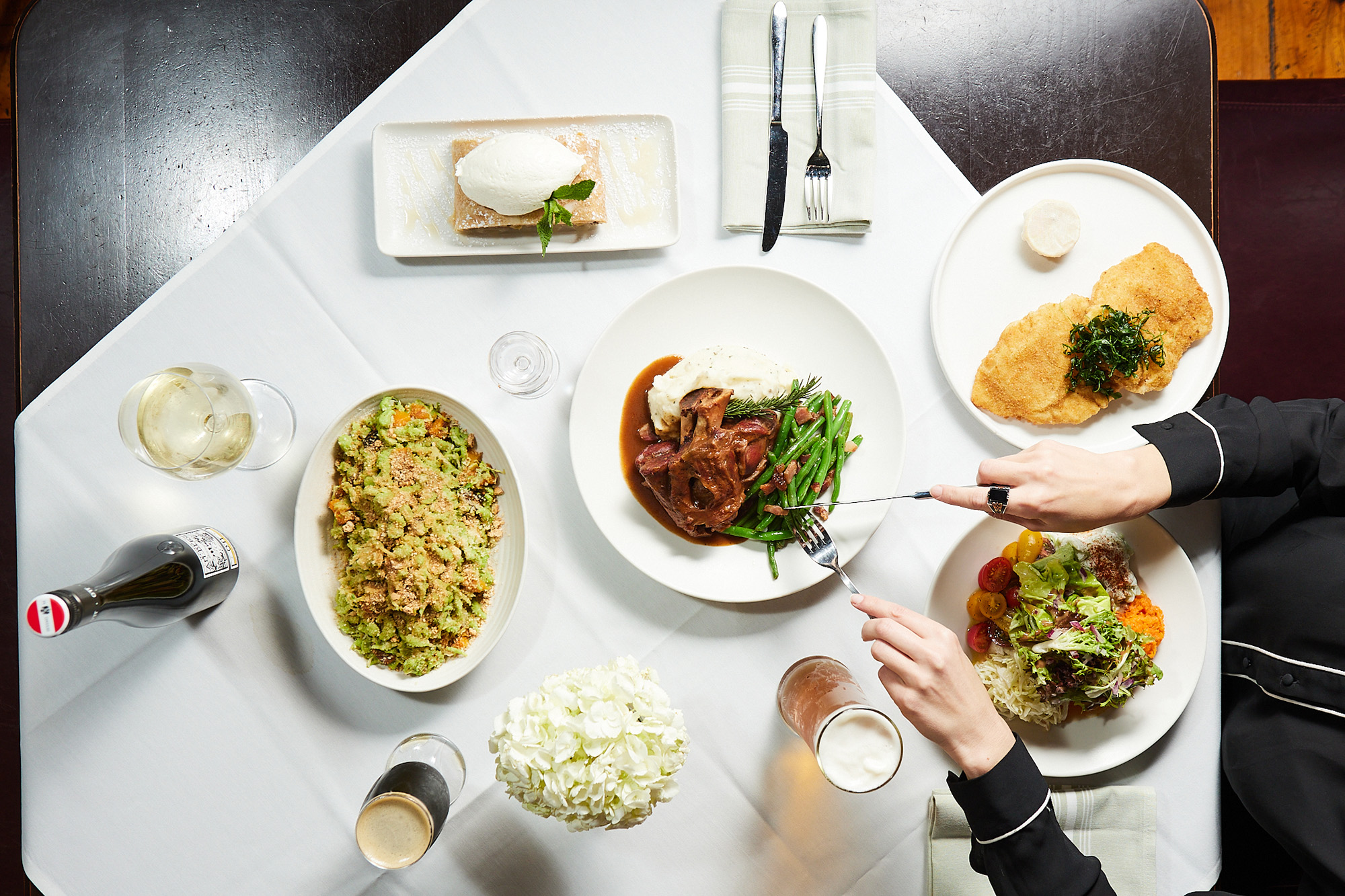While many cannot separate or explain Austrian or Viennese cuisine without reference to German food, it is important to note that there are as many differences as there are similarities. Further, many of the dishes thought to be German are, in fact, from Austria. The two most quintessential items, of course, are Wiener schnitzel and apple strudel. “Wiener” literally means “from Vienna.” These Austrian delights are cornerstones of Austrian cuisine and our menu here at Grünauer.

Another common misconception is that Austrian food is all heavy, hearty, cold weather fare. To the contrary, Viennese cuisine places strong emphasis on seasonality, cold salads, light soups, fresh fish and, when the protein on the plate is heavier, the accompaniments are usually lighter to balance the dish. The perfect example of this is a Wiener schnitzel and its accompanying salads paired with a glass of grüner veltliner or a cold Stiegl Pils.
Still, there is no shortage of classic European comfort food on our menu. Highlights include our spicy Hungarian gulasch (or “goulash” as some know it), sausages, schweinsbraten (roast pork with bread dumpling and red cabbage), and many more.
Lastly, the menu in a Viennese gasthaus changes with the seasonal availability of various fruits, vegetables, mushrooms, and other delicacies. Expect the mainstays of our menu to stick around throughout the year but be prepared for many items to change with the seasons.
All of this happens under the direction of our talented Executive Chef Matthias Seyfrid. Matthias is a Bavarian born and classically trained chef with many years of international culinary experience. His menu, though grounded in Central European tradition, is always fresh, seasonal, and unique. It is with his guiding hand, that we are able to offer a menu of such unparalleled quality and authenticity so far from Vienna.





